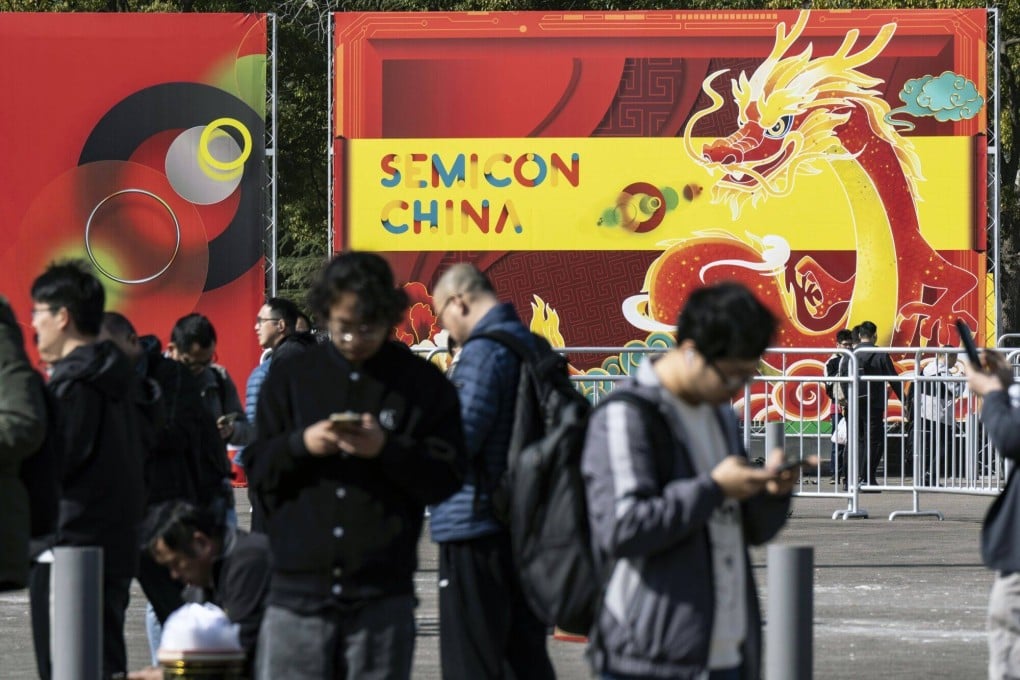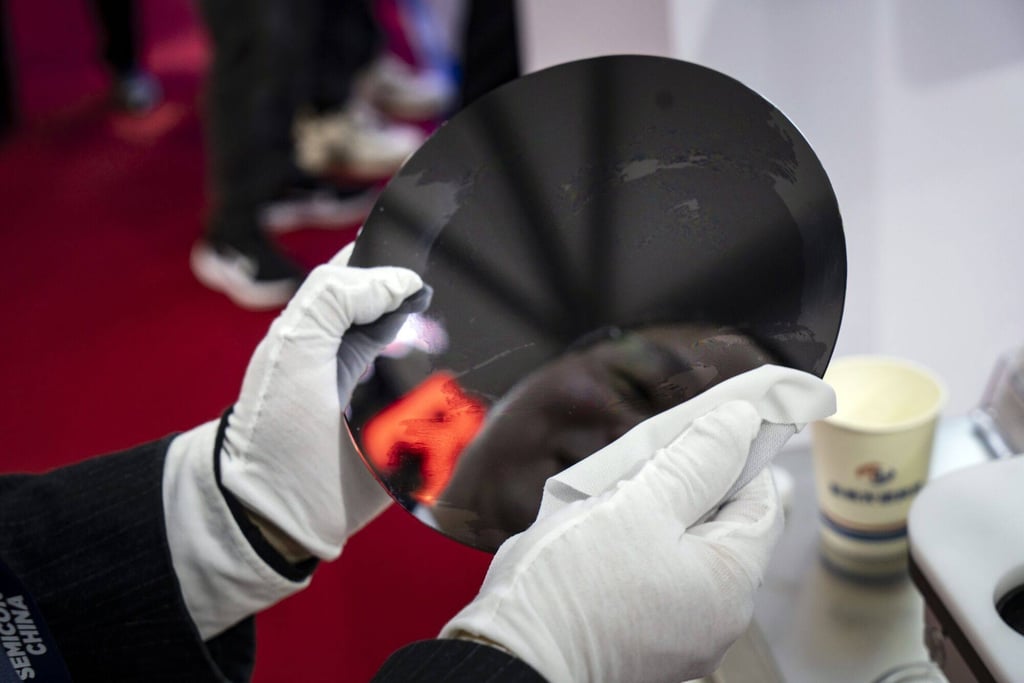Tech war: Chinese chip executives put faith in global cooperation despite intensifying US restrictions
- At Semicon China, which began in Shanghai on Wednesday, industry veterans highlighted the role that China plays in the global chip supply chain
- Chinese chip companies are excited about the progress made by US firm Nvidia, says the chairman of Yangtze Memory Technologies Corporation

China’s top semiconductor executives attending an annual industry gathering called for tighter collaboration with their global peers, but none of them addressed the elephant in the room: growing US export curbs on advanced chip technology.
But for veterans in the Chinese chip industry, the country will remain a key part of the international semiconductor supply chain.
Chen also serves as chairman of the China Semiconductor Industry Association, a 744-member trade group.

“China’s semiconductor market belongs to the world, while the world’s semiconductor market also belongs to Chinese companies,” Chan said. He added that speeches made previously by Huang convinced him about the future of the global semiconductor market, which Semicon China projected will top US$1 trillion by 2030 on the back of AI-related chip demand.